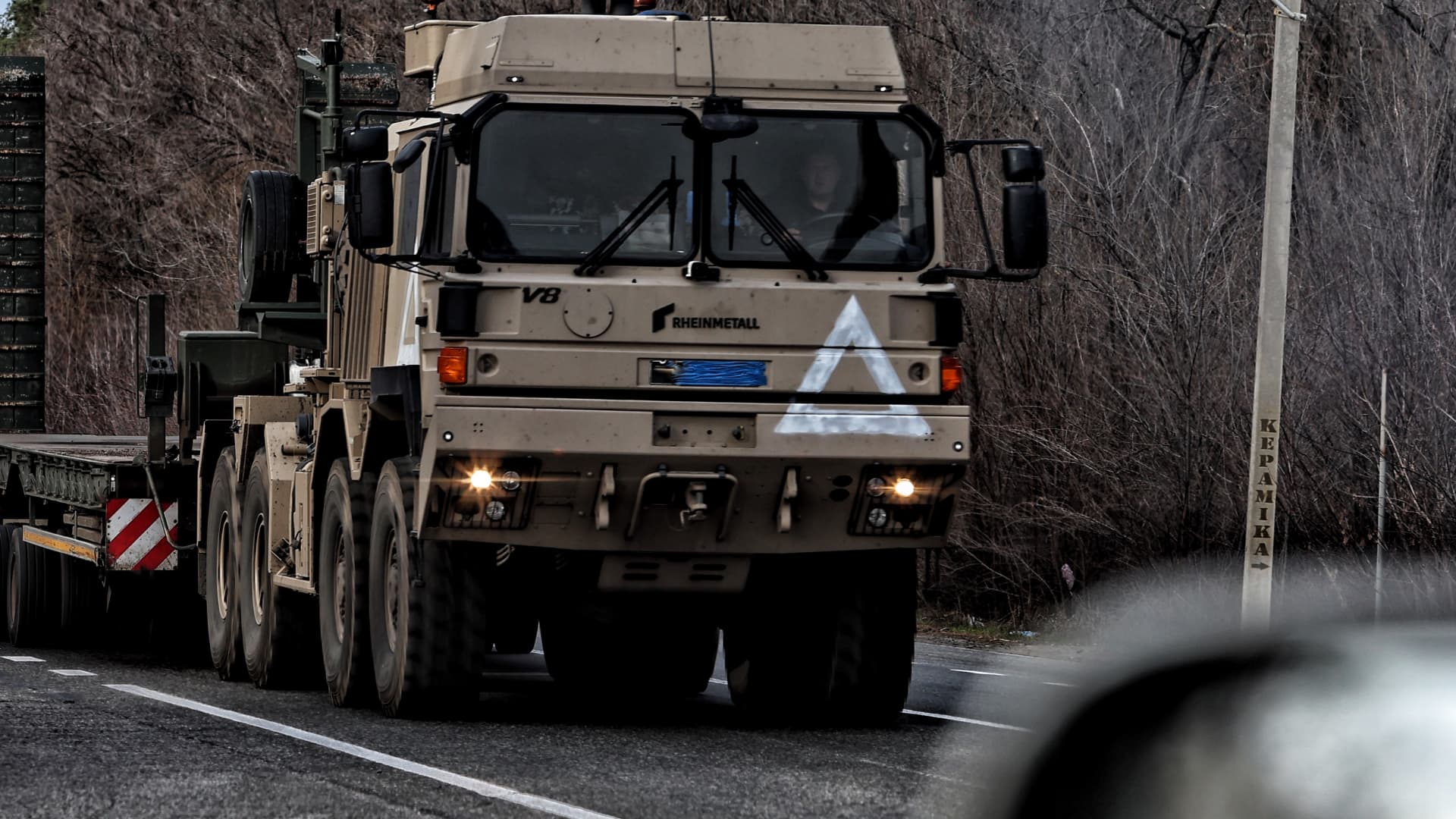European Defense Stocks & Gas Prices Decline Amid US-Ukraine Peace Talk Progress, EU Sets Conditions
 Ukraine
Market Analysis
Ukraine
Market Analysis

European defense stocks and gas prices fell sharply as US and Ukraine made progress in peace talks. EU outlined its conditions, challenging a leaked US plan for
European Markets React to Ukraine Peace Talk Progress: Defense Stocks Dip, Gas Prices Hit Low
European financial markets experienced notable shifts recently, with defense sector stocks declining and natural gas prices hitting an 18-month low. These movements coincided with reports of advancements in peace discussions between the United States and Ukraine regarding the ongoing conflict.
Market Reaction: Defense Stocks and Gas Prices Fall
On Monday, European defense stocks extended their previous session's losses, trading significantly lower. The Stoxx Europe Aerospace and Defense index saw a 2.1% dip during morning trading, reaching its lowest point since July, according to LSEG data. Prominent German defense firms like Rheinmetall, Hensoldt, and Renk each recorded approximately a 4% decline, anchoring the bottom of the pan-European Stoxx 600 index. Swedish defense company Saab also experienced a 3.5% fall.
Simultaneously, Europe's benchmark natural gas prices dropped below 30 euros ($34.59) per megawatt-hour on Friday morning, marking an 18-month low. This decline in energy prices often signals reduced geopolitical tension or increased supply confidence.
Progress in US-Ukraine Peace Talks
The market reactions followed Sunday's announcement from the U.S., confirming "highly productive" progress in weekend peace talks involving U.S. Secretary of State Marco Rubio. Despite these positive consultations, a comprehensive agreement on security guarantees for Ukraine remained elusive.
Divergent Peace Proposals: US vs. EU
Details emerging from these discussions highlight a potential divergence in proposed peace frameworks. A widely leaked U.S. plan reportedly suggested significant concessions from Ukraine, including ceding territories such as Crimea, Luhansk, and Donetsk. It also proposed that Kyiv commit to never joining the NATO military alliance. In return, Ukraine would ostensibly receive "reliable" security guarantees, though its armed forces would be capped at 600,000 personnel, according to The Associated Press. However, analysts expressed skepticism about Ukraine's willingness to endorse such a U.S. plan, which some perceive as overly favorable to Russia.
Conversely, the European Union has articulated its own clear objectives for a lasting peace in Ukraine. The European Commission, the EU's executive body, declared on Sunday that crucial conditions include rejecting any forced border changes and imposing no limitations on Kyiv's armed forces. These stipulations directly challenge several elements believed to be present in the leaked U.S. proposal, underscoring a potential strategic rift among Western allies.
Expert Outlook: Short-Term Optimism, Long-Term Caution
Ben Gutteridge, a market insights strategist at Invesco, offered a nuanced perspective on the situation. While acknowledging that the short-term geopolitical outlook appears "a little more encouraging" due to peace talk progress, he cautioned that the medium and long-term prospects remain "precarious." Gutteridge suggested that Russia might gain confidence in its geopolitical strategy over time, reinforcing the "structural story" for investing in defense stocks. He emphasized that in an increasingly tense global environment with shifting spheres of influence, defense sector investments retain a "structural position" within diversified portfolios.